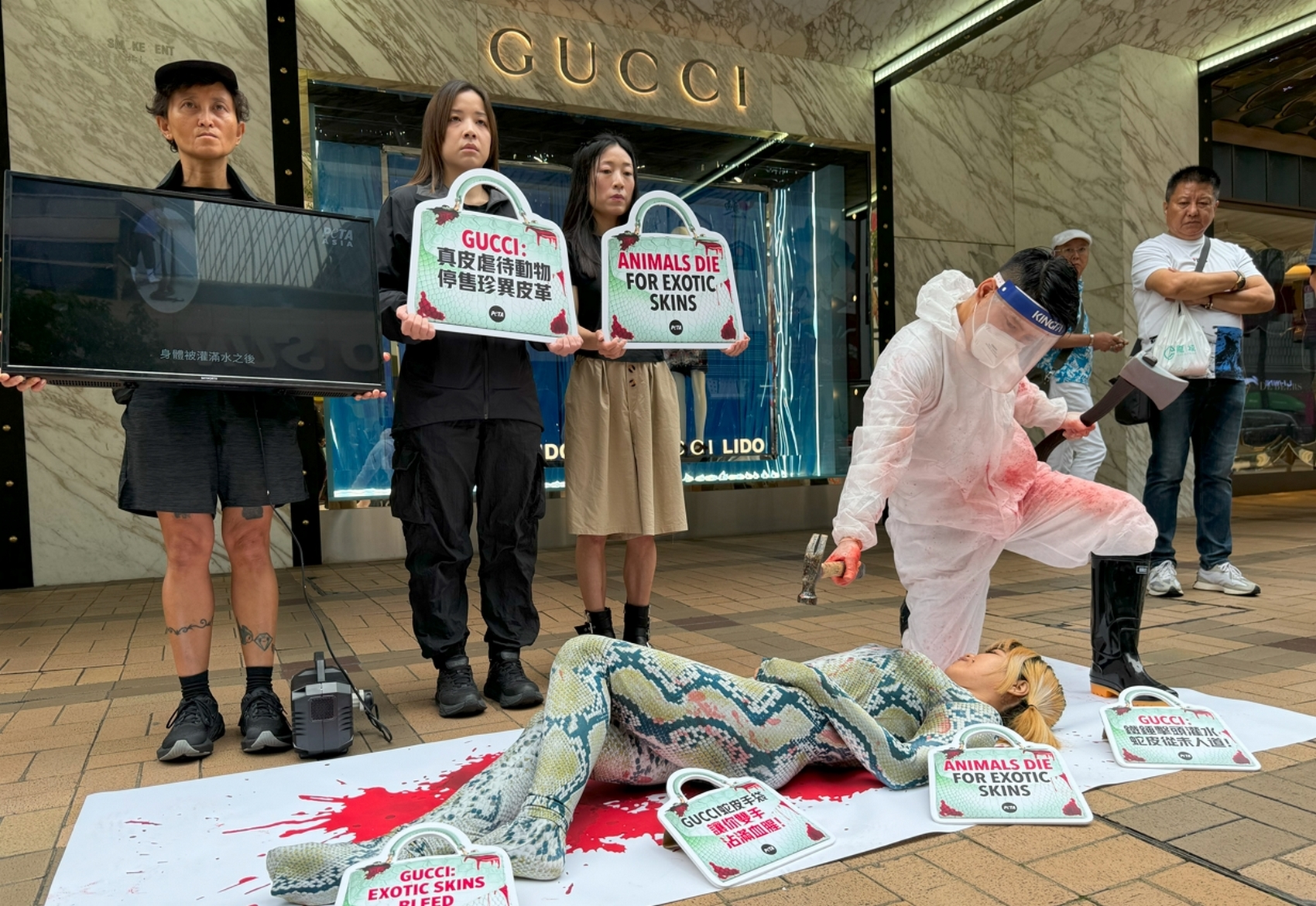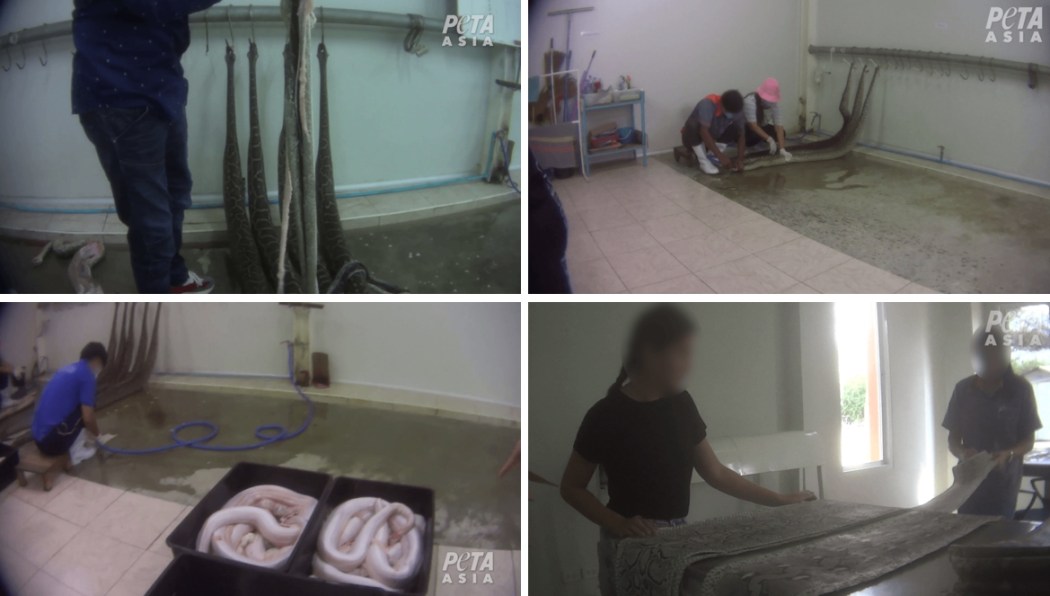Activists perform ‘snake skinning’ outside Gucci store, urging owner Kering to halt ‘cruel’ use of animal skins

On Wednesday, a protester from the organization People for the Ethical Treatment of Animals (PETA) wore a costume resembling a snake and was publicly "skinned" outside a Gucci store in Tsui Sha Tsui. This was a form of performance art intended to persuade the store's owner to stop supporting cruel treatment of animals.

An inquiry conducted by PETA on the exotic-skins business in Thailand disclosed that many snakes were kept in small spaces, hit with hammers on their heads, and hung on hooks even when they were still alive. All of this was done so Kering, a fashion conglomerate, could obtain materials for their products such as bags, shoes, belts, and other accessories.
According to the report of the investigation, PETA Asia went to a place where the workers use a metal blade to puncture the crocodiles and then remove their skin while they are still alive and showing movement.
Kering, a grand company of high-end fashion located in France, has a possession of luxury brands like Gucci and Yves Saint Laurent, among others.

Pythons and other wild animals are subjected to a life of captivity in small, unsanitary containers before being violently killed by hammering, skull penetration, and skinning methods, according to a press release by PETA Senior Vice President Jason Baker on Tuesday. Kering is being urged by PETA to cease the selling of products obtained from the slaughter of pythons or any other wild animal and replace them with animal-friendly vegan materials that ethical consumers prefer.
On World Environment Day, some activists protested against the use of snakeskin for fashion. They carried signs that said things like "It's cruel to beat and fill snakeskins with water" and "Gucci's snakeskin handbags are made with blood." During the demonstration, one protester wearing a coat with red paint on it tore snake-patterned leggings off of another activist who was struggling.

When HKFP asked Kering about a certain matter, they directed the question to Gucci. Unfortunately, Gucci did not reply to the inquiry.
Kering has its own regulations concerning the welfare of animals, which include guidelines stating that animals must have adequate space to move around and must be taken care of properly to ensure good health, with prompt treatment provided in case of any injuries or illnesses. Despite this, a recent report from PETA claims that Kering has been aware of evidence to the contrary since 2021, thereby rendering its animal welfare policies ineffective.
PETA Asia conducted an investigation that exposed the brand's failure to meet these standards, contradicting their claims. They urge individuals to file a complaint against the brand.

Get involved with HKFP by offering your support, familiarizing yourself with our policies and ethical standards, reporting any errors or typos you may come across, reaching out to us via our contact page, signing up for our newsletter, and checking out our transparency and annual report. Additionally, make sure to download our apps to stay connected with us on the go.
Assist in protecting the freedom of the press and maintain HKFP's availability to all audiences by lending your support to our team.
In 2015, Tom established Hong Kong Free Press where he now holds the position of editor-in-chief. Aside from his editing duties, he takes charge in overseeing the newsroom and the overall operation of the company. This involves spearheading fundraising efforts, recruitment, and making sure that HKFP adheres to ethical guidelines. He is also responsible for managing the website's appearance and functionality.

Having completed his undergraduate studies in Communications and New Media at Leeds University, he went on to pursue a Master's degree in Journalism at the University of Hong Kong. Prior to that, he played a leading role in an NGO dedicated to promoting the rights of domestic workers. His work has been featured on several major media platforms including the BBC, Deutsche Welle, Al-Jazeera and others.
Additional content from Tom Grundy

















































